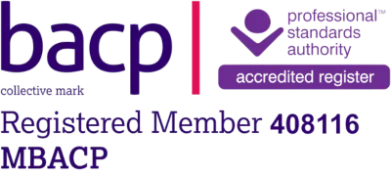Welcome to Steven Franks Counselling
Empathy, Understanding, and a Way Forward
Welcome to Steven Franks Counselling
Empathy, Understanding, and a Way Forward
Counselling for individuals, in-person and online
Welcome, and thank you for visiting my website.
"No one told me life was going to be so difficult."
Did you ever have this thought?
I've thought this as well. Maybe you didn’t feel you were prepared for how to deal with stress, disappointment, or when things didn’t work out. Perhaps you have always felt anxiety or experienced loss or other trauma. Maybe it feels too difficult to talk about, even to those closest to you- how could they really understand how it is to be you, and how can you explain your experience of depression? Maybe you couldn’t even be sure exactly what you were feeling?
If you’ve felt something similar, you are not alone. Exploring your issues in a confidential space with me as your counsellor could help release the things that cannot be expressed anywhere else, especially if those closest to you are connected to the pain.
I can provide you with acceptance and compassion, to explore possible causes, with a view to enabling awareness, self esteem and positive choices. A different relationship to the issues that affect you.
Is Counselling Right for You?
It might seem like a big step, but just as you visit a doctor for physical issues or pain, think of counselling as the same for your emotional pain.
You may have a specific issue you want to address, such as stress, loss, or trauma. Perhaps you’re experiencing a general sense of anxiety or uncertainty, or feeling that something is missing.
You might feel unhappy for no particular reason, feeling low self esteem or depression, and are questioning the meaning of life.
I offer a talking therapy that helps you understand your specific circumstances and move forward.
Together, we’ll explore your existing resources and coping mechanisms in new ways.
What to Expect from Our Sessions
We will meet weekly, for either short or long-term counselling, and the sessions can be online or in person in London Bridge or Twickenham.
There’s no couch—just the two of us engaging in open dialogue, focusing on the unique issues you bring.
The conversation will be guided by your needs, and together we’ll explore the challenges you’re facing.
Navigating the Counselling Process
If this is your first time seeing a counsellor, it may feel strange or even embarrassing at first. I understand, and I will gently put you at ease. You are encouraged to share any fears or concerns about the process. While we’ll focus on the difficulties you're experiencing, we might also find moments to smile at life’s absurdities. Our conversation can go wherever you need it to. Occasionally, we may use imagination or imagery to express feelings or thoughts. It might sound uncomfortable or unfamiliar, but it’s often easier than you think.
Try this for example:
Can you remember your first school? What did the buildings look like—the outer walls, windows, stairs, or corridors? Was there a specific smell inside? How did you feel in the classroom, playground, or lunchroom?
Maybe these questions arouse more of an overall image than a precise memory, and a feeling associated with that image. This exercise uses your imagination, which we can also do together in a supportive space, exploring what these images may mean for you.
Issues that you could bring to counselling with me
Stress
Bereavement
Depression
Work and study problems
Loneliness
Illness
Eating Disorders
Relationship difficulties
Confusion
Anxiety
Frustration
Low confidence and self-esteem
Trauma and Post Traumatic Stress Disorder
About me
Before I trained as a counsellor, I spent 28 years working in the disability sector, providing advice, guidance and support. I was always sensitive, and it was often hard working in a very corporate environment, with constant measures of success against competencies and targets, and the pressures that brings. I felt my core attributes would be of better use as a counsellor, but I carry a deep understanding of the isolation and frustration that people with disabilities often face, and a belief that society needs to make itself more inclusive and accessible.
I chose to train as a counsellor with the Psychosynthesis Trust, which I felt had a modern and flexible way of looking at the individual, both in terms of the past but also the future.
Psychosynthesis is a transpersonal therapy. It evolved and retained some core elements from psychotherapy, with the main element being the therapeutic conversation between a client and myself. Psychosynthesis then looks beyond the mind, taking into account the whole person, emotional and physical, and to influences from society and the wider world. There is also a focus on choice and will in looking ahead, finding one's purpose and potential.
To find out more about the Psychosynthesis Trust you can visit their website here.

Paula Deegan Photography
To find out more about BACP and their Ethical Framework you can visit their website here: https://www.bacp.co.uk/
Paula Deegan Photography
I hold the Post-Graduate in Psychosynthesis, and I am qualified to work with adults. As a member of the BACP I work within their Ethical Framework, and ensure that you get professional counselling.
I am DBS checked to working with adults and comply with data handling in line with GDPR.
To find out more about BACP and their Ethical Framework you can visit their website here: https://www.bacp.co.uk/
My location
I work from private rooms located at:
2-4 Union Street, London Bridge, SE1 1SZ
and
20 The Green, Twickenham, TW2 5AB.
In addition to providing face-to-face therapy, I also offer online sessions. Contact me to find out more about how online therapy works.
Availability
I offer a free 20-minute telephone conversation to give you a chance to ask questions and see if you think I would be the right counsellor for you, with no obligation.
If am unable to support you, I will provide you with some recommendations of where to go.
Fees
Counselling Sessions
50 minutes
£60 per session
If we decide to start sessions, we will arrange a mutually convenient time, either online or in-person, and with a general idea of how long you want your therapy to be.
Payment can be paid electronically. The fee will be charged if the session is cancelled within 48 hours of the appointment time.
Get in touch
Feel free to contact me if you have any questions about how counselling works, or to arrange an initial assessment appointment. This enables us to discuss the reasons you are thinking of coming to counselling, whether it could be helpful for you and whether I am the right therapist to help.
You can also call or text me on 07982 828 975 if you would prefer to leave a message or speak to me first. I am happy to discuss any queries or questions you may have prior to arranging an initial appointment.
All enquires are usually answered within 24 hours, and all contact is strictly confidential and uses secure phone and email services.
Some frequently asked questions
What's the difference between counselling and therapy?
Counselling is usually a good way to help with a current problem; something that can be discussed and - hopefully - resolved within a limited number of sessions. Over a certain number of weeks the understanding of the problem improves and away forward becomes clear. Therapy often describes work that goes a bit deeper, towards more substantial life issues and problems having a deeper effect on the client’s life. Therapy often requires a long-term approach, so the number of sessions can be open-ended.
Which option is most suitable depends on the client and the difficulties they are facing. In some cases counselling works well as an ongoing, longer-term option - or therapy can manage to resolve an issue in just a few sessions.
Will everything I say be kept confidential?
Everything that is said within the counselling room is private - this is one of the main ways counselling and therapy differ from talking to a friend or relative. Once you are comfortable with the format of weekly sessions and the safe space they provide, you will find the freedom to speak in confidence is of great value.
Note that there are some situations where you may be a risk to yourself or others, and there the law requires that I notify an authority; in these cases I may not be able to keep total confidentiality. Breaking confidentiality is very rare though, and only happens after the person concerned has been informed.
Can I bring a friend or relative with me?
Usually I am asked this question by people who are nervous about entering into counselling, or when they are looking for support in coming to see a therapist. This anxiety is understandable, but a key aspect of therapy is that you should feel free to talk about any issues you feel are important to you. Having someone else with you who can be connected those issues makes this opening-up more difficult, so for this reason I do not see clients accompanied by friends or family.
How long will I need to have counselling?
How long a period of counselling lasts will vary from person to person and depend on the depth of the issues they are facing. For some people a couple of sessions helps to bring their problems into focus, and they feel ready to move forward; other problems may require more of an open-ended approach.
Before we begin any work we will agree on the number of sessions we’ll undertake, and at the end of that number review our progress. As long as we both agree further therapy will be of benefit to you, sessions can continue.
How long will I have to wait for an appointment?
My aim is to offer a first appointment - known as an initial assessment - within 1-2 weeks. Then we would arrange a set number of counselling sessions to take place at the same time every week, that is convenient for you and where I have availabity. How quickly these sessions can begin will depend on the availabity of that free ‘slot’.
© Steven Franks Counselling
powered by WebHealer
